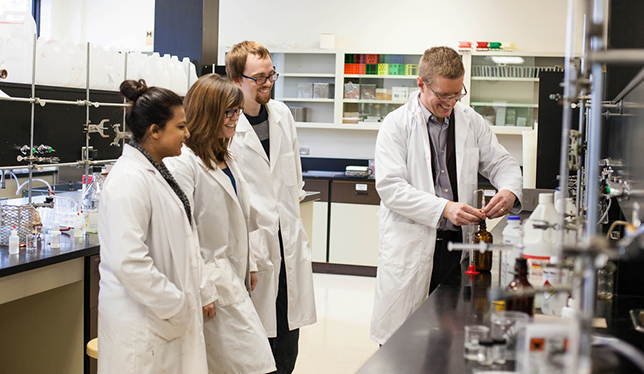Why you should translate your discoveries from bench to bedside

The following is an edited transcript from a talk I gave at the medical device development course, Brigham and Women’s Hospital (Boston, MA) on May 12, 2016.
Due to length, I have broken the talk up into seven parts:
- Part 1: Why do this?
- Part 2: What you need to do before you start
- Part 3: Identifying milestones
- Part 4: Execution strategy
- Part 5: Leaving academia
- Part 6: Questions and answers 1
- Part 7: Questions and answers 2
So my talk is on translation in the academic setting. What I mean by translation, specifically, is translation through entrepreneurship. There are many ways to translate your discoveries from bench to bedside, so to speak. This is the one I’m the most familiar with, it’s also the one I think is most exciting, and the one I want to talk about.
I really want to talk about why you should even want to engage in a translational research venture, or program. It is definitely not for everybody.
I will also talk about what you need to do before you start. There is a lot of material you have got to cover; a huge amount of understanding you need to come to before you’re even ready to start a company. And I’ll take you through how you get started through that market research and planning.
And the last step of course is actually spinning out the company and I wrote “leaving academia” because either yourself or someone very close to the technology in your lab is going to have to leave academia to realize the vision of that new startup company. So you’re going to have to come to terms with that at one point or another.
So why do this? I thought it probably easiest to think about this in terms of a cost-benefit analysis. There are a lot of good reasons to do it, and a lot of reasons to maybe not get involved in the first place.
Pros
I am sure most of us want to translate our discoveries into practical applications so that we can save people’s lives. That’s a great reason to get involved. Another good reason is that success in doing something like this is incredibly unique. It distinguishes you from your colleagues, it’s something to be very prideful of and also a very good reason to engage in this kind of work.
There is a huge financial upside to being a founder of a successful company. Over the course of the project, you may be involved as a consultant; you may help with some of the early discovery work, but if you remain a founder and take the company through its natural evolution to success, the equity that you hold in that company will be worth tens of millions of dollars. That overrides any sort of salary you would have made along the way.
Now, more important than the financial, is the network that you develop. While you are in the process of translating a technology, you will come in contact with everyone from licensing, legal, business, finance, regulatory. You’re not just learning skill sets, but you’re also making connections. Regardless of how the company does, that will ultimately make you a better scientist.
You need to want to fundamentally disrupt existing systems. I say this because if you are looking at the way things are right now and it really irritates you that there is a much, much better way of doing things and yours is the better way of doing things, this is the sort of thing you probably want to get involved in.
And last, but not least, of course, it’s exciting. I can tell you from personal experience that it’s probably the most exciting thing I’ve ever done in my life.
Cons
I’ll start with the low margins of success. You are compounding the limited margin of success you have in science with the limited success you have in business. Now, I like to pride myself that my academic lab has only a 90 percent failure rate and I think you’re doing pretty well if you’re on that 90 percent level as well, but you need to understand that you are compounding that 90 percent failure with probably something similar in business and you’re almost assuredly not going to succeed. That doesn’t necessarily bother some people, but that’s the flip side of the reputation. If it really concerns you to be involved with a failed venture, if you think it’s going to have a significant detrimental effect in your career development and you’re not willing to take that risk, then maybe you shouldn’t get involved in something like this.
There is also no job security. But we are academics, so I don’t think there’s significantly more; and probably less job security there too. I wouldn’t put much stock into that.
I would put stock into the time commitment required to see a translational venture through and I say that because, at least for the early stages, before you or someone in your lab goes full-time to the company, you’re very much actively involved in the process. You’re still running your lab, you’re still doing your research, and so you are sacrificing your weekends, your evenings, your mornings, your family life. If you think you work really hard now, imagine doubling that and it’s your personal life, your friends, that you are going to sacrifice. So, that needs to be taken into consideration.
And lastly, if you don’t like to rock the boat, you’re going to feel a substantial amount of opposition taking any sort of translational program through. You’re pushing against an established status quo with many people that are very comfortable the way the system is and don’t believe that what you are trying to do is in any way possible. You will hear that non-stop through the whole process. Even once you think you’ve been successful, you’re still going to hear it. So, if that bothers you, if you’re not willing to push this boulder uphill, incessantly, forever, then maybe this is not the right sort of thing to get involved in.
Featured Jobs
- Business – Lecturer or Assistant Professor, 2-year term (Strategic Management) McMaster University
- Education - (2) Assistant or Associate Professors, Teaching Scholars (Educational Leadership)Western University
- Psychology - Assistant Professor (Speech-Language Pathology)University of Victoria
- Canada Excellence Research Chair in Computational Social Science, AI, and Democracy (Associate or Full Professor)McGill University
- Veterinary Medicine - Faculty Position (Large Animal Internal Medicine) University of Saskatchewan












Post a comment
University Affairs moderates all comments according to the following guidelines. If approved, comments generally appear within one business day. We may republish particularly insightful remarks in our print edition or elsewhere.